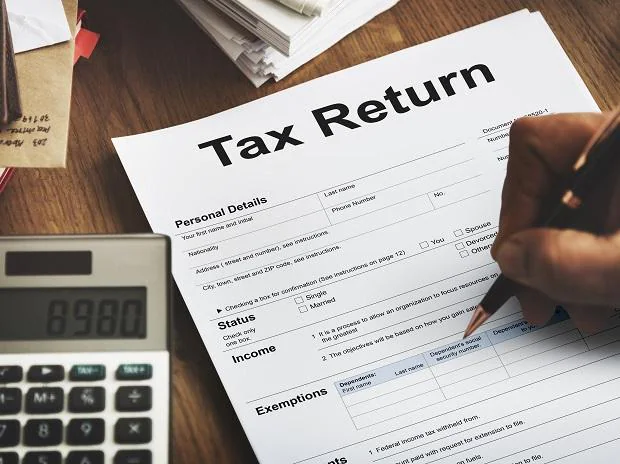When you skip a month’s EMI, what are you charged? A penalty, right? Everything needs to be done on time and in precision in order to not be charged extra. None of us want to be charged extra, do we? Well, it is our hard-earned money, and we like to value every bit of it. This also applies, especially when it comes to income taxes and income tax returns. What exactly happens when you don’t file your income tax returns? That is exactly what we are going to be seeing over here. Before that – if you are questioning yourself what income tax returns are – here we tell you that too.
Are You a Taxpayer Who Had Just Missed Out on Filing for ITR? Here is What You Will Pay as a Penalty
The following is a list of taxpayer types and the penalties for failing to file income tax returns by the due date.
- Individuals who earn a salary: Three types of people are considered here.
- Total annual income less than Rs.2.5 lakh: There is no penalty (No ITR penalty for nil return)
- Total annual income less than Rs.5 lakh: The maximum penalty is Rs.1,000.
- Total annual revenue in excess of Rs.5 lakhs: Rs.10,000 and beyond
- Up to Rs. 10,000 for businesses
- Self-employed people: a maximum of Rs. 10,000
- Older people: The penalty for failing to file Income Tax Returns under Section 234F applies solely to older individuals who meet the following criteria.
- In between the ages of 60 and 80, with a total yearly income of more than Rs. 3 lakhs.
- Over the age of 80 – with a total yearly income of more than Rs.5 lakhs.
- There are now many people whose gross annual salaries do not surpass the taxation limit. When you are one of them – you may be wondering how a late ITR filing penalty may affect you.
When you are a taxpayer, you just know how important Income Tax Filing is – keep reading, and you will know what happens when you do not file it. But what happens when you are not one of the taxpayers mentioned above? Keep reading to find out.
Do You Fall Under the Below-Taxable Income Category? Everything You Need to Know on ITR
In general, the Income Tax Department does not impose penalties for failure to file an ITR on persons or organizations whose total gross income is less than the exemption limit. ITR is filing for taxpayers who meet the following conditions despite not having taxable income.
Those who have spent more than Rs.1 lakh on electricity Individuals who have spent more than Rs.2 lakh on overseas travel. The ones who have a whole deposit of more than Rs. 1 crore in a single or more current accounts with a bank
Those who live in India earn a living through foreign assets.
If you meet any of these or other circumstances outlined in the latest amendment to the Income Tax Act, you must pay the appropriate penalty for failure to file an ITR. This, as previously stated, applies even to persons who do not have taxable gross income.
Now that you know which situations require you to file an ITR, you must also understand how to pay the penalty if you fail to file your returns by the deadline.
How to Pay Off Your Penalties?
You can pay your late ITR filing penalty both online and in person. Here’s how to calculate your liabilities for missing the income tax return filing deadline.
Here is the procedure you can follow:
Step 1: Navigate or visit the Income Tax India website, which is located at https://www.incometaxindia.gov.in/Pages/tax-services/file-income-tax-return.aspx.
Step 2: On the main page, select Forms/Downloads from the top menu. Choose Challans from the drop-down menu.
Step 3: On the following page, you will find a list of challans that you can download. Choose one of the PDF or Fillable Form choices instead of ITNS-280, depending on your preferences.
Step 4: Download the form or pick it up at the local bank location.
Complete this form completely. Submit the form attached with the mentioned penalty payment to the appropriate bank’s counter. You can pay with cash or check and pick up your receipt at the same time.
This challan receipt serves as payment acknowledgment and can be utilized for future challan verification. If you do not have this paperwork, you will be unable to verify that you paid your fine, which could result in serious penalties later.
What Happens if You Still Do Not File It?
Until recently, several of the criteria stated here concerned the consequences of failing to file an ITR by the required date. If a taxpayer fails to file the income tax returns for a whole assessment year, the ITR department will issue a notice under Sections 142(1), 148, or 153A. If an ITR is not submitted, notwithstanding these processes, the individual may face tax evasion prosecution under Section 276CC. The following are the specifics of incarceration.
- For alleged tax evasion of more than Rs 25 lakh: Penalty for failure to file ITR + 6 months in prison, with a maximum term of 7 years.
- In other cases, the penalty is a fine plus three months in prison, with a maximum sentence of two years.
Closure
It is way too overwhelming when you know you’ve been fined or charged extra – it just makes things much harder, and it feels like you are carrying so much more weight along with you. Now that you know the penalty that you would be charged for not filing your income tax returns, it is best you keep in mind always to get it done on time.





